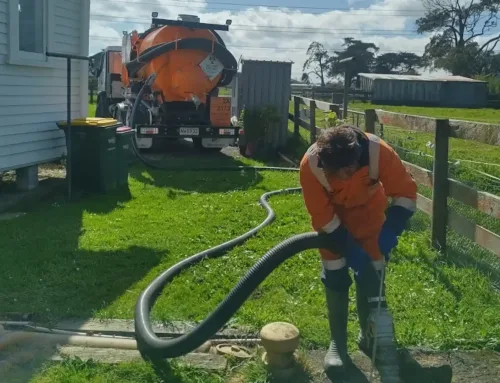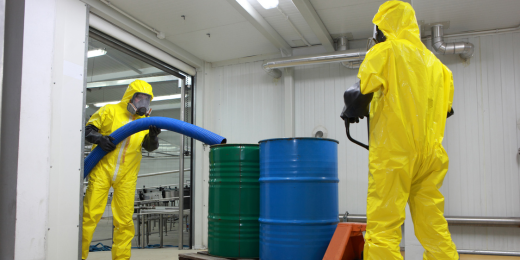Top Guidelines Of Reclaim Waste
Top Guidelines Of Reclaim Waste
Blog Article
The Only Guide for Reclaim Waste
Table of ContentsGetting The Reclaim Waste To WorkIndicators on Reclaim Waste You Should KnowIndicators on Reclaim Waste You Should KnowOur Reclaim Waste StatementsGetting The Reclaim Waste To Work
Explore the kinds, incidents, and forms of fluid waste. Residential sewage waste describes the waste and products from a domestic septic tank. This kind of waste is created by human beings in residences, institutions, and various other buildings. This only includes sewage-disposal tanks that have a drainpipe field. The appropriate management and disposal of domestic sewage waste need fluid waste to be transferred to a sewer treatment plant where the correct approaches and devices are related to purify and dispose of waste.
Business waste commonly includes prospective threats, such as flammable products or a mixture of liquid and solid waste products, and requires a much more innovative and thorough disposal procedure. The disposal of commercial waste normally includes the purification of waste before transport to make sure safe and appropriate disposal. Hazardous waste is created from by-products and drainage of commercial procedures and production.
This type of waste can not utilize the exact same sewer administration transport or procedures as septic or business liquids. The hazardous waste management process needs the examination and screening of liquid waste before it undertakes the disposal procedure (liquid waste disposal melbourne). Runoff waste is the liquid waste that originates from runoff and excess stormwater in extremely populated locations or cities
Drainage waste can create contamination and flooding otherwise handled properly. Find out more regarding sewer cleaning and waste management. Making sure appropriate waste administration can stop catastrophes and minimize environmental damage. Both people in residential setups and specialists in business or production sectors can take advantage of comprehending the processes and policies of liquid waste monitoring.
Unknown Facts About Reclaim Waste
Call PROS Providers today to find out about our waste administration and disposal services and the appropriate means to take care of the fluid waste you generate.
(https://telegra.ph/Expert-Liquid-Waste-Disposal-and-Removal-Services-in-Melbourne-11-12)This so-called 'wastewater' is not only a vital source however, after therapy, will be launched to our land, rivers or the sea. Utilized water from commodes, showers, baths, cooking area sinks, laundries and commercial processes is recognized as wastewater.

water utilized to cool equipment or clean plant and devices). Stormwater, a form of wastewater, is runoff that moves from agricultural and city locations such as roof coverings, parks, gardens, roadways, paths and seamless gutters into stormwater drains pipes, after rain. Stormwater streams neglected directly to regional creeks or rivers, at some point reaching the ocean.
Little Known Facts About Reclaim Waste.
In Queensland, the majority of wastewater is dealt with at sewer therapy plants. Wastewater is moved from residential or commercial websites via a system of sewers and pump stations, called sewerage reticulation, to a sewage treatment plant. Local federal governments construct, keep and run most sewer therapy plants. Operators are accredited under the Environmental Defense Act 1994 to release treated wastewater at an appropriate ecological requirement into waterways.
The Department of Natural Resources recommends local federal governments about managing, operating and maintaining sewage systems and therapy plants. In unsewered areas, city governments might need homeowners to set up private or home sewer therapy systems to deal with domestic wastewater from toilets, kitchens, restrooms and washings. The Department of Natural Resources authorizes making use of family systems when they are shown to be efficient.
Most stormwater obtains no therapy. In some brand-new communities, treatment of some stormwater to remove clutter, sand and crushed rock has started utilizing gross contaminant catches. Wastewater treatment occurs in 4 stages: Removes solid matter. Bigger solids, such as plastics and other things mistakenly discharged to sewage systems, are eliminated when wastewater is travelled through displays.
Wastewater after that flows into large storage tanks where solids work out and are gotten rid of as sludge. Oil and residue are skimmed from the surface. Utilizes small living microorganisms understands as micro-organisms to damage down and eliminate remaining liquified wastes and great particles. Micro-organisms and wastes are incorporated in the sludge. Eliminates nitrogen and phosphorus nutrients that might create algal blooms in our waterways and threaten aquatic life.
See This Report about Reclaim Waste
Nutrient removal is not offered in any way sewer therapy plants due to the fact that it calls for expensive specialised equipment. It is becoming extra usual in Queensland. Clear fluid effluent created after therapy might still have disease-causing micro-organisms. If this effluent is launched right into rivers such as rivers or the sea, the micro-organisms will ultimately die out.

The majority of wastewater streams right into the sewage system. Under the Act, regional federal governments provide approvals and permits for ecologically relevant activities (ERAs) including wastewater releases that might have a local effect.
Some Known Factual Statements About Reclaim Waste
Or else, samples are considered research laboratory evaluation. Frequently lots of examinations are required to develop the levels of each of the various contaminants such as oils, hefty steels and chemicals in water. Surveillance provides factual information about water high quality and can verify that permit problems are being satisfied. The site web details gotten via surveillance offers the basis for making water high quality decisions.
Report this page